
Learning a new tool can often be challenging, and it’s easy to get overwhelmed trying to determine which features are the most important for your workflow. If you’ve worked in a studio environment before, you’ll be more accustomed to different software, tools and features, but even so, you may find yourself in a similar position as I was – struggling to build my own projects from scratch.
It all boils down to the basics. No matter how experienced you are, these are easy to overlook, especially when you’re eager to get started quickly. While this may sound trivial to some, pulling yourself back to the start and building a better understanding of the basic features of a tool can pave the way for stronger workflow foundations later on – you never know when you’re going to need those skills.
Foundry’s lookdev and lighting tool Katana provides everything you need to get started on your learning journey. Its efficient toolset enables artists to maximise their creative freedom, so they’re not wasting time on menial tasks or technical glitches but building on their basic skills and putting them into practice.
So what do you need to get started in Katana? And how can you build your own projects from scratch? From organising your node graphs to optimising your workflow, this guide will go through some of the core concepts that can help you get started on your own learning journey with the flexible lighting toolset, Katana.
DOWNLOAD YOUR RESOURCES For all the assets you need go to https://bit.ly/3D-world-arcturus
01 BUILD YOUR PROJECTS EFFICIENTLY
This story is from the November 2021 edition of 3D World UK.
Start your 7-day Magzter GOLD free trial to access thousands of curated premium stories, and 9,000+ magazines and newspapers.
Already a subscriber ? Sign In
This story is from the November 2021 edition of 3D World UK.
Start your 7-day Magzter GOLD free trial to access thousands of curated premium stories, and 9,000+ magazines and newspapers.
Already a subscriber? Sign In
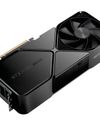
Nvidia GeForce RTX 4080 Super Founders Edition
On the surface, the GeForce RTX 4080 Super is barely any different from the vanilla GeForce RTX 4080 that was launched in 2022.

MCU VFX moments
Pros choose their favourite CG shots from the Marvel Cinematic Universe
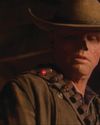
Nosing around on Fallout
We sniff out the story of how FutureWorks brought The Ghoul to life with the creation of his iconic noseless face

DISCOVER RED GIANT GEO'S HANDY TOOLS
Heather Sterland introduces one of the newest additions to Maxon's suite of Red Giant VFX plugins with an atmospheric lunar creation
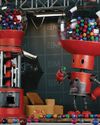
BUILD AND ANIMATE A FUN-FILLED ROBOT
Expand your horizons with Julio Benavides, who reveals his workflow for creating a charming hard-surface character

DESIGN STRIKING SCULPTS AT SPEED
Learn how to build 3D characters that balance visual quality and efficient workflow with pro advice from Oh Holy Mary
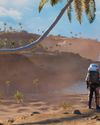
CREATE A CANYON ENVIRONMENT
Build a stunning desert setting with an expert walkthrough from Romain Eboli, who uses high-quality Quixel assets
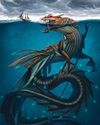
TURN A 2D CONCEPT INTO AN INCREDIBLE 3D-PRINTED FIGURE
Concept artist Emily Chapman shares her process for sculpting, printing and painting an outstanding model to put on display

Goodbye SAIGON
Trevor Hogg gets held captive by multiple versions of Robert Downey Jr.while uncovering the visual effects of HBO's spy series The Sympathizer
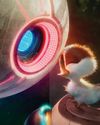
IMPRESSIONISTIC REALISM
Trevor Hogg learns how the artisan aesthetic came to be for The Wild Robot